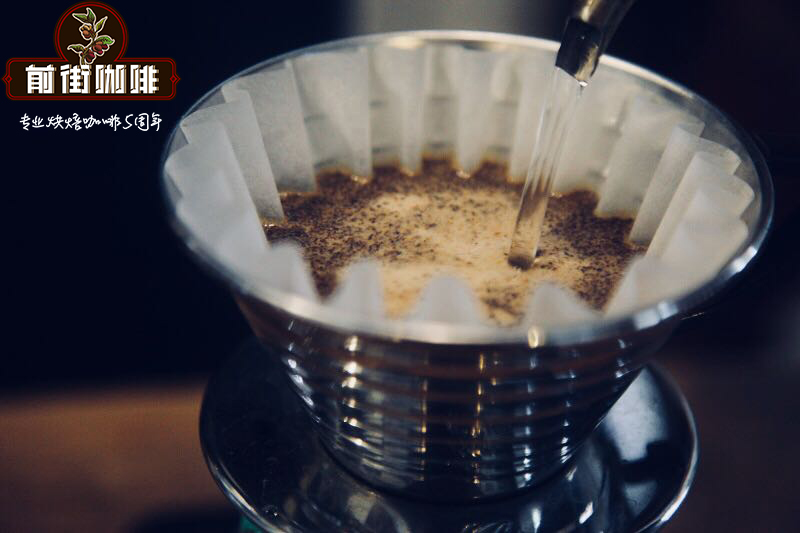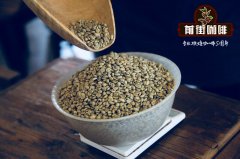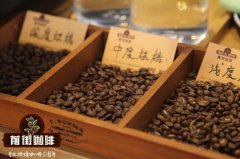Blue Mountain Coffee | are you sure you had authentic Blue Mountain Coffee? How about pure Jamaica Blue Mountain Coffee?

Professional coffee knowledge exchange more coffee bean information please follow the coffee workshop (Wechat official account cafe_style)
Why is Blue Mountain coffee so expensive? are we drinking the real Blue Mountain?
Blue Mountain Coffee refers to coffee brewed from beans from the Blue Mountains of Jamaica. According to the grade, it is divided into Jamaica Blue Mountain Coffee and Jamaican Alpine Coffee. The Blue Mountains are located in the eastern part of the island of Jamaica, hence its name because it is surrounded by the Caribbean Sea. On clear days, the sun shines directly on the blue sea, and the peaks reflect the bright blue light of the sea. The highest peak of the Blue Mountains, 2256 meters above sea level, is the highest peak in the Caribbean, which is located in the coffee belt, with fertile volcanic soil, fresh air, no pollution, humid climate, foggy and rainy all the year round (the average precipitation is 1980 mm, the temperature is around 27 degrees). Such a climate has created the world-famous Jamaican Blue Mountain Coffee, as well as the second most expensive coffee in the world.
[flavor] the taste is rich and mellow, the sweet, sour and bitter taste of coffee is perfect, there is no bitterness at all, only a moderate and perfect sour taste and a long-lasting fruit taste.
The "secret" of the pure taste of Blue Mountain Coffee
Their coffee trees are on rugged hillsides, and the picking process is so difficult that non-local skilled female workers are simply unable to do it. It is very important to choose the right ripe coffee beans when picking. Immaturity or ripeness will affect the quality of the coffee. The picked coffee beans are shelled on the same day, and then let them ferment for 18 hours. After that, the coffee beans were cleaned and screened. The subsequent process is to dry, which must be carried out on the cement floor or on a thick blanket until the humidity of the coffee beans drops to 12% 14%. And then store it in a special warehouse. Take it out and roast when needed, then grind it into powder. These procedures must be strictly mastered, otherwise, the quality of coffee will be affected.
China Import Coffee Bean Trading Network all say that Blue Mountain is good, Blue Mountain is really good. But are you sure you're drinking the real Blue Mountain? The editor dares to say that more than 90% of the people who boast that they drink blue mountains are fake blue mountains. There is not no real thing in China, but it is very difficult to learn to pick a real one out of ten thousand kinds of fake goods. Blue Mountain is a region of Jamaica, producing the best Blue Mountain estate, the most famous is the Wallenford and the most famous coffee farm. The gourmet Blue Mountain is very expensive. Even if the cheap Blue Mountain of other estates is produced in Jamaica, its planting land can not reach the elevation it should have. Although it is of good quality in boutique beans, it is not as good as the Best Blue Mountain after all.
The shipment of Blue Mountain Coffee was so small that in 1717 King Louis XV of France ordered the cultivation of coffee in Jamaica, and in the mid-1920s, the Governor of Jamaica, Nicholas. Nicholas Lawes imported Arabica seeds from Martinique and began to plant them in St. Andrew.
To this day, St. Andrews is still one of the three major producers of Jamaican Blue Mountain Coffee, with the other two producing areas: Portland (Portland) and St. Thomas (St.Thomas). In eight years, Jamaica exported more than 375 tons of pure coffee. In 1932, coffee production reached its peak and more than 15000 tons of coffee was harvested. At present, the recognized blue mountain growing area of Jamaica is only 6000 hectares, and only about 40, 000 bags of blue mountain coffee are produced every year. Production in Jamaica was bogged down by a hurricane in 1969, and Japanese UCC companies provided assistance, thanks to Japan, Jamaica signed a contract with Japan in 1972 to supply 90 per cent of production to the Japanese market, leaving about 3500 barrels (70 kg oak barrels) on the market (and the only coffee in oak barrel packaging).
According to Jamaica's CIB export statistics as of 2013, 85 per cent of the limited Blue Mountain 1 quota was allocated to Japan, 5 per cent of the United States, 5 per cent of Europe and 5 per cent of other countries.
Therefore, conscientious merchants in domestic and foreign markets will tell customers that this is comprehensive blue mountain, blue mountain flavor, blue mountain style coffee beans, not real blue mountain coffee, the real blue mountain flavor and blue mountain flavor are two different concepts, generally using other beans to roast coffee that mimics the taste of blue mountain coffee. People who can really drink Blue Mountain NO1 and the best Blue Mountain will never be bought in supermarkets or stores, except in Japan or can only be bought in the hands of roasters with certain ability and conscience, as precious as gems.
How much is the authentic Blue Mountain? Purchase and Identification of Jamaica Blue Mountain Coffee
Important Notice :
前街咖啡 FrontStreet Coffee has moved to new addredd:
FrontStreet Coffee Address: 315,Donghua East Road,GuangZhou
Tel:020 38364473
- Prev

How to distinguish between authentic and fake Blue Mountain Coffee authentic Blue Mountain Coffee how to drink authentic taste?
Professional coffee knowledge exchange more coffee bean information Please pay attention to the coffee workshop (Wechat official account cafe_style) Blue Mountain Coffee Why are we drinking the real Blue Mountain Coffee? the real Blue Mountain Coffee, which perfectly combines the sour, bitter, sweet and mellow tastes of coffee, making other coffee unmatched, therefore, Blue Mountain Coffee is usually drunk in the form of black coffee. Coffee
- Next

The grading system of authentic Blue Mountain Coffee how much is a cup of Blue Mountain Coffee
Professional coffee knowledge exchange more coffee bean information please follow the coffee workshop (Wechat official account cafe_style) Blue Mountain coffee why is it so expensive do we drink the true blue mountain BlueMountainNo.1 Blue Mountain 1 bean type: 96% more than 17 BlueMountainNo.2 18 eyes defective bean proportion: 2% blue mountain 2 bean type: 96% above 16 BlueMountainNo.2 17 eye defective bean proportion: 2 BlueMou
Related
- Detailed explanation of Jadeite planting Land in Panamanian Jadeite Manor introduction to the grading system of Jadeite competitive bidding, Red bid, Green bid and Rose Summer
- Story of Coffee planting in Brenka region of Costa Rica Stonehenge Manor anaerobic heavy honey treatment of flavor mouth
- What's on the barrel of Blue Mountain Coffee beans?
- Can American coffee also pull flowers? How to use hot American style to pull out a good-looking pattern?
- Can you make a cold extract with coffee beans? What is the right proportion for cold-extracted coffee formula?
- Indonesian PWN Gold Mandrine Coffee Origin Features Flavor How to Chong? Mandolin coffee is American.
- A brief introduction to the flavor characteristics of Brazilian yellow bourbon coffee beans
- What is the effect of different water quality on the flavor of cold-extracted coffee? What kind of water is best for brewing coffee?
- Why do you think of Rose Summer whenever you mention Panamanian coffee?
- Introduction to the characteristics of authentic blue mountain coffee bean producing areas? What is the CIB Coffee Authority in Jamaica?

